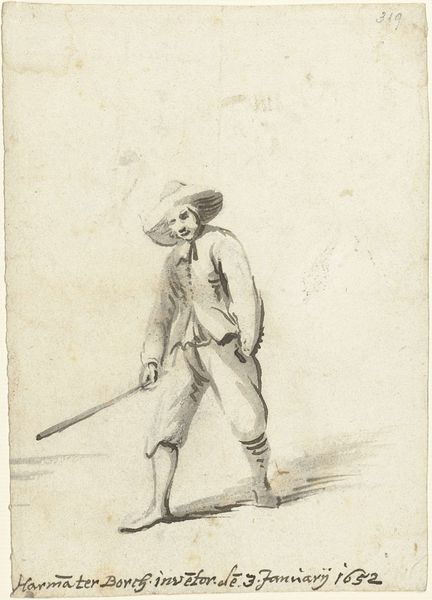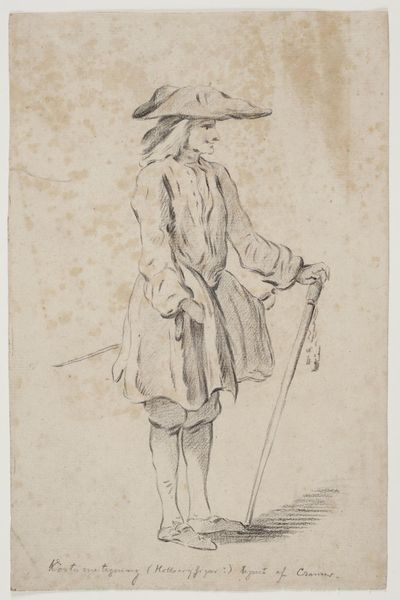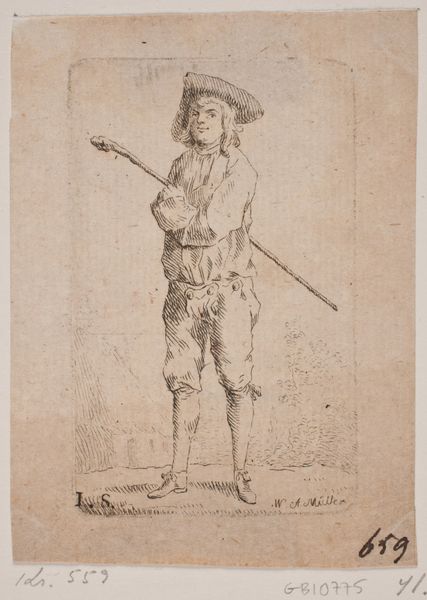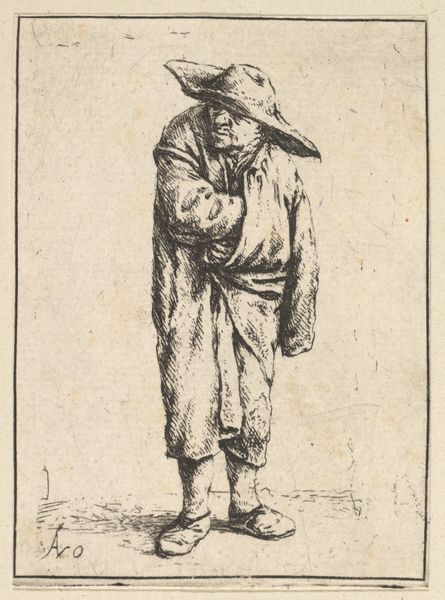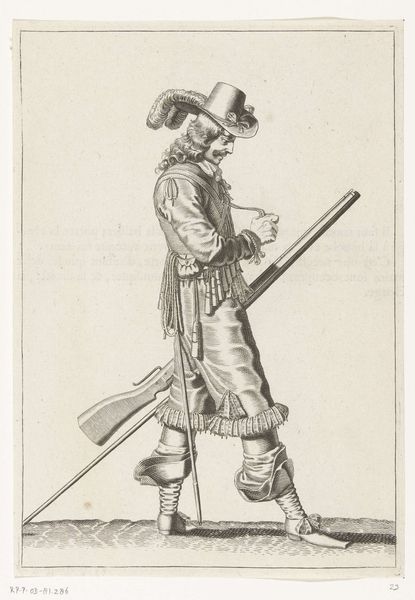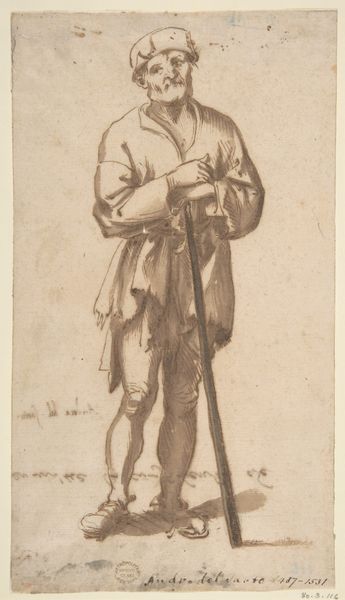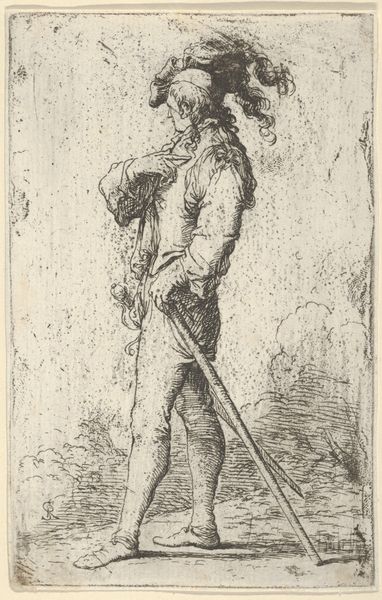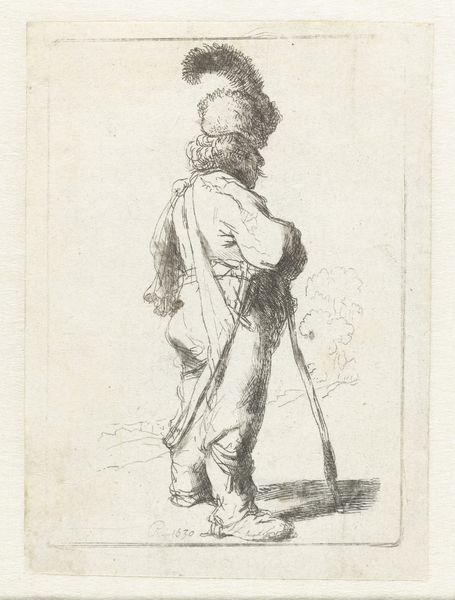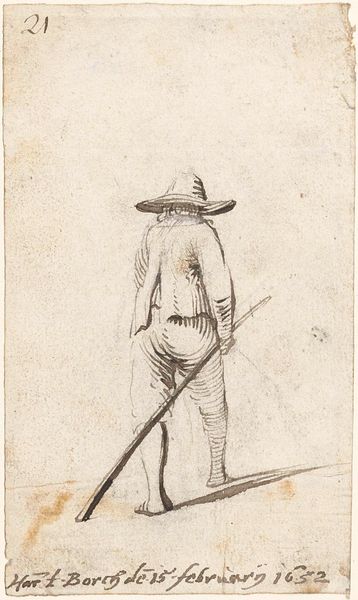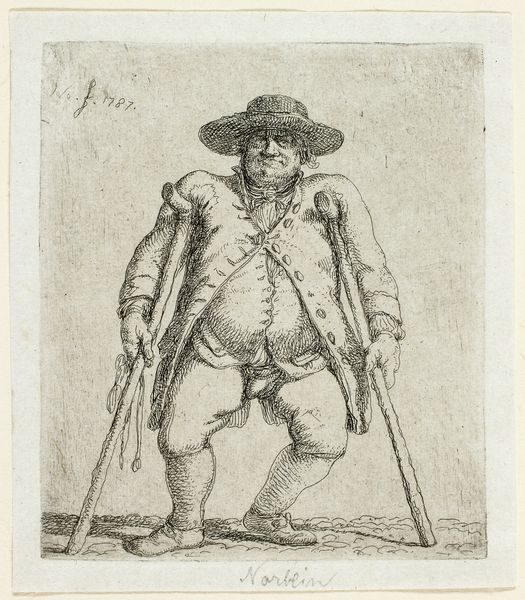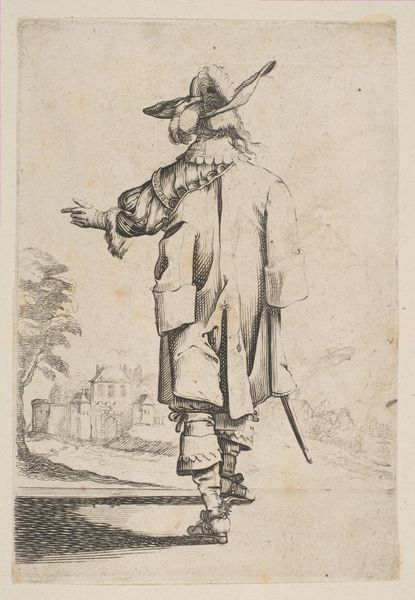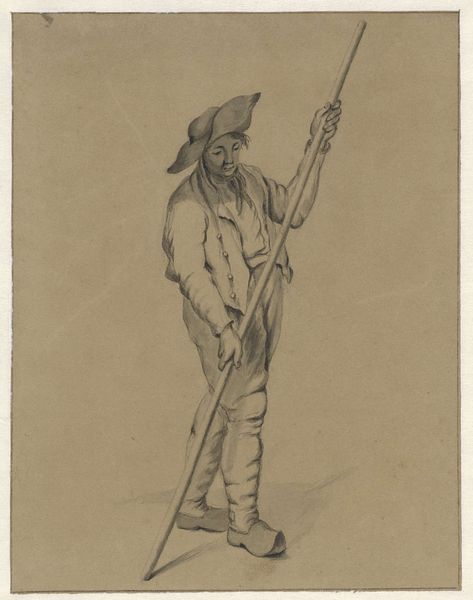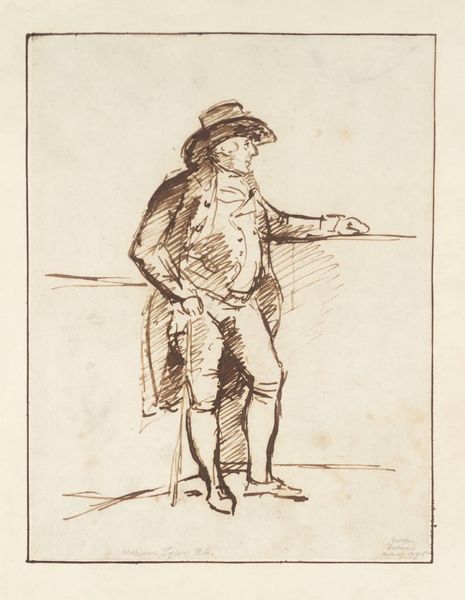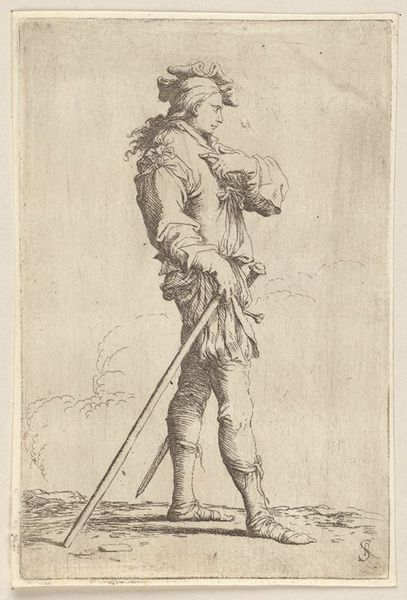
Standing Boy Holding a Whip and Raising his Right Hand c. 1640 - 1650
0:00
0:00
rembrandtvanrijn
Rijksmuseum
drawing, paper, ink
#
portrait
#
drawing
#
imaginative character sketch
#
toned paper
#
light pencil work
#
quirky sketch
#
dutch-golden-age
#
pencil sketch
#
paper
#
personal sketchbook
#
ink
#
sketchbook drawing
#
watercolour illustration
#
genre-painting
#
sketchbook art
#
fantasy sketch
Dimensions: height 137 mm, width 105 mm
Copyright: Rijks Museum: Open Domain
Editor: Here we have Rembrandt van Rijn's "Standing Boy Holding a Whip and Raising his Right Hand," created around 1640 to 1650, rendered in ink on paper. There’s something quite theatrical about his pose, the way he gestures. How do you interpret this work? Curator: Well, what strikes me is how Rembrandt is engaging with ideas about youth and authority circulating in Dutch society at the time. He gives us this boy with the trappings of power – the whip, the raised hand as if commanding. But consider who this image would appeal to. Editor: I see what you mean. Curator: Consider the audience for a sketch like this. Was it meant to hang in a public gallery? Likely not. More probably this sketch landed within a collector’s cabinet, or in a private sketchbook where the wealthy of Dutch society may contemplate how authority plays out at different levels. The question I keep asking myself, and I invite you to ask too, is who is the artist trying to appeal to and why? Editor: So, not necessarily a straightforward celebration of boyhood then, but perhaps a commentary on power dynamics as seen through a societal lens? Curator: Precisely! It reveals more about how certain audiences were invited to consume such ideas than anything concrete about one boy and one whip. And, of course, what those commissions did to boost Rembrandt's fame and status as an artist! Editor: I hadn't thought about it that way. Seeing it as part of a larger socio-political landscape adds another dimension. Curator: Exactly. By looking at the cultural context, we can unpack layers of meaning and understand its ongoing relevance.
Comments
No comments
Be the first to comment and join the conversation on the ultimate creative platform.
